Breadcrumb
-
Guidebook
-
Travel Guide
-
The Power of Volunteering Abroad
The Power of Volunteering Abroad
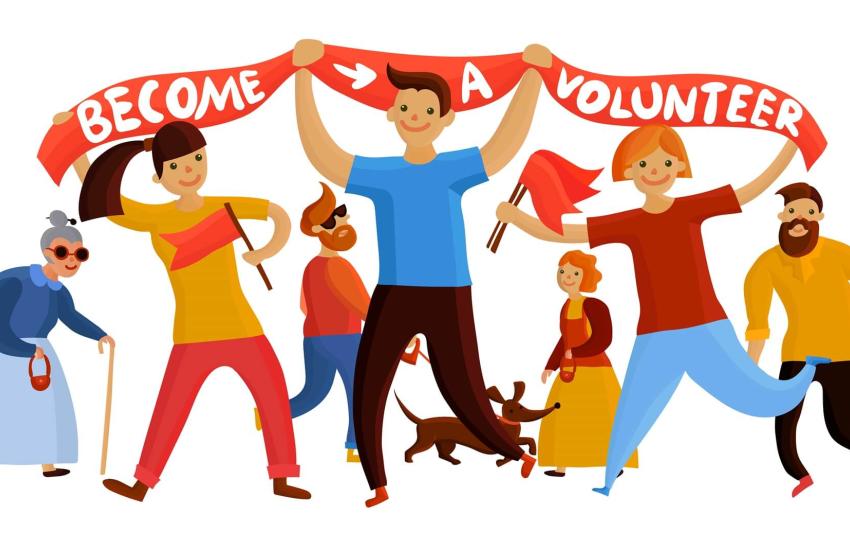
Volunteering overseas represents a powerful force for good in a world marred by suffering and inequality. These acts of selflessness transcend mere compassion, capable of profoundly impacting lives, reinvigorating communities, and ultimately fostering a better world. Through compelling stories and instances, we aim to shed light on the profound effects of international volunteering, showcasing how seemingly modest acts of dedication can lead to extensive and enduring benefits for those facing adversity. Overseas volunteering holds immense potential to uplift the lives of marginalized individuals and underserved regions, offering hope and transformation on a meaningful scale.
Empowering Education: Illuminating Futures
Education serves as a potent instrument to disrupt the cycle of poverty and open doors to a more promising tomorrow. Nonetheless, in many disadvantaged communities across the globe, the issue of accessing quality education remains a pressing concern. Volunteering abroad with organizations committed to educational initiatives provides individuals with an opportunity to actively contribute to addressing this gap. Whether through tutoring, mentoring, or assisting in school construction projects, volunteers become agents of empowerment, granting children and adults the knowledge and skills essential for constructing improved lives for themselves and their communities.

- Bridging Educational Gaps
When volunteering abroad, individuals often find themselves working in schools, community centers, or non-profit organizations with an educational focus. Volunteers fulfill an essential role by closing educational disparities through the provision of vital support and resources to these establishments. Whether they're aiding teachers, developing educational materials, or coordinating extracurricular activities, their contributions significantly enhance the overall learning experience for students.
- Fostering a Love for Learning
Working with educational non-profits, community centers, or schools is a common aspect of international volunteer work. Volunteers help narrow educational disparities by giving these institutions the assistance and resources they desperately need. Your work helps students have more rewarding educational experiences, whether you're assisting instructors, producing educational materials, or planning extracurricular events.
- Empowering Teachers and Local Educators
Volunteering abroad isn't just about teaching; it's also about empowering local educators. Collaborating with teachers and sharing best practices allows for professional development and enhances their teaching skills. This exchange of knowledge and ideas creates a sustainable impact, as empowered educators can continue to inspire and educate long after the volunteers have departed.
- Promoting Gender Equality in Education
Girls still face major challenges in getting an education in many regions of the world. You may actively support programs that advance gender equality in education by volunteering. You help dismantle cultural norms and preconceptions by giving females educational opportunities and promoting an inclusive learning environment, enabling them to realize their full potential.
- Enhancing Digital Literacy
Digital literacy is a necessary ability for both personal and professional development in the modern world. By giving volunteers access to computers and technologically based learning resources, many volunteer programs concentrate on improving digital literacy. By giving people digital literacy skills, you empower them to take a more active role in the global economy and keep up with opportunities and current events.
- Supporting Lifelong Learning
Volunteering abroad isn't limited to children; it also extends to adult education and vocational training. Volunteering in adult education programs empowers individuals to acquire new skills and improve their employability. Lifelong learning opportunities provide adults with the tools they need to secure better job prospects and enhance their overall quality of life.
Healthcare and Wellness: Healing Hearts and Bodies
Health disparities remain a pressing issue in many developing regions. Volunteer opportunities in healthcare provide invaluable support to communities lacking access to proper medical services. Whether it's administering basic healthcare checkups, conducting health awareness campaigns, or assisting in medical facilities, volunteers contribute to improved health outcomes and reduced suffering.
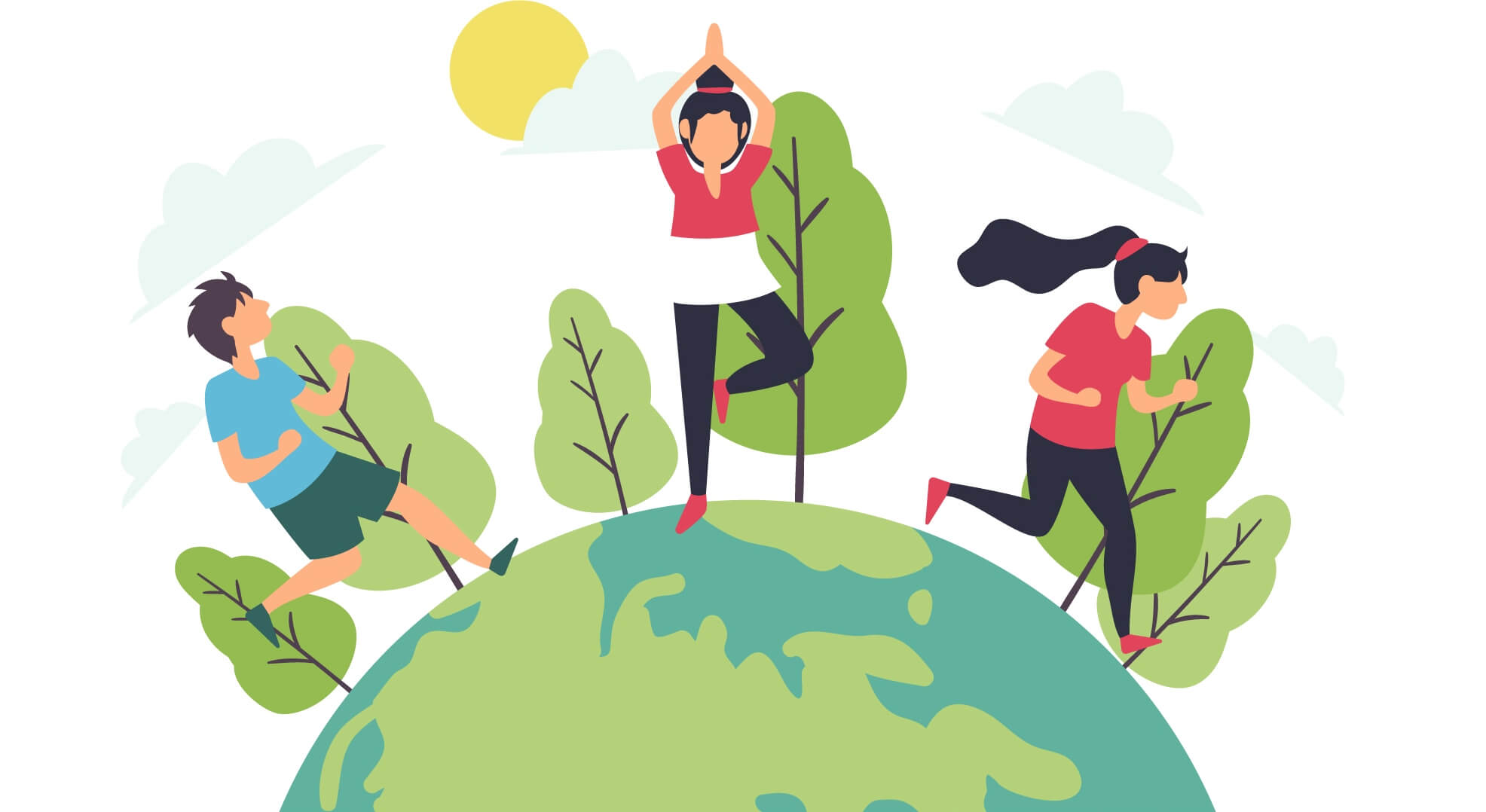
- The Heart of Healthcare Volunteering
Imagine being a beacon of hope for people lacking access to proper healthcare. Volunteering in medical clinics or hospitals abroad opens doors to new experiences and challenges. Whether you're a medical professional or an aspiring one, your expertise and empathy will be instrumental in improving the health and well-being of underserved communities. From treating minor injuries to assisting in surgeries, every action you take can be life-changing for the patients you encounter. Moreover, you'll have the chance to collaborate with local healthcare professionals, exchange knowledge, and learn about unique medical practices from different corners of the globe. - Spreading Wellness and Mental Health Awareness
Wellness encompasses not only good physical health but also mental and emotional well-being. Sadly, mental health issues often carry a stigma in various societies and often remain unaddressed. Volunteering abroad provides a chance to advocate for mental health support and awareness. Your role could entail organizing workshops on stress management, mindfulness, and coping techniques. Interacting with individuals grappling with mental health difficulties can establish a safe environment for them to share their concerns and seek assistance, ultimately empowering them to lead more content and healthier lives. - Empowering Women's Health
In several parts of the world, women face unique healthcare challenges and limited access to proper medical facilities. Volunteering in women's health initiatives allows you to address these disparities and promote gender equality. You might work on projects related to maternal healthcare, family planning, or conducting educational sessions on women's hygiene and reproductive health. By empowering women to take charge of their health, you contribute to the growth and development of entire communities. - Bridging the Nutrition Gap
The foundation of good health is laid with proper nutrition, yet it's disheartening that malnutrition remains a significant problem in various areas. As a healthcare and wellness volunteer, you have the opportunity to join forces with local organizations to address this issue directly. This may entail the establishment of nutrition programs for children, providing families with education on balanced diets, and adopting sustainable agricultural practices. By ensuring that communities have access to nourishing food, you contribute to a healthier and more prosperous future. - Nurturing a Global Perspective
Volunteering abroad opens doors to a world of cultural exchange and personal growth. You'll find yourself immersed in vibrant traditions, delicious cuisines, and unique customs. Interacting with locals and fellow volunteers from different backgrounds broadens your perspective and challenges preconceived notions. As you adapt to new environments and overcome language barriers, you'll develop resilience and empathy, both crucial traits for healthcare and wellness professionals. These experiences will stay with you long after you return home, enriching both your personal and professional life.
Environmental Conservation: Preserving Nature's Beauty
Our planet's intricate ecosystems are confronting unparalleled challenges, thrusting environmental conservation into the forefront of global concerns. Volunteering for environmental conservation initiatives emerges as a compelling and proactive means to safeguard the splendor of nature and advance sustainability. Whether it's shielding endangered species or rehabilitating fragile habitats, volunteers assume a pivotal role in the preservation of the awe-inspiring natural marvels that enrich our existence. In this blog post, we embark on a journey to unravel the profound importance of environmental conservation through volunteering, delving into the diverse opportunities that beckon us to make a resounding positive impact on the health of our beloved planet.
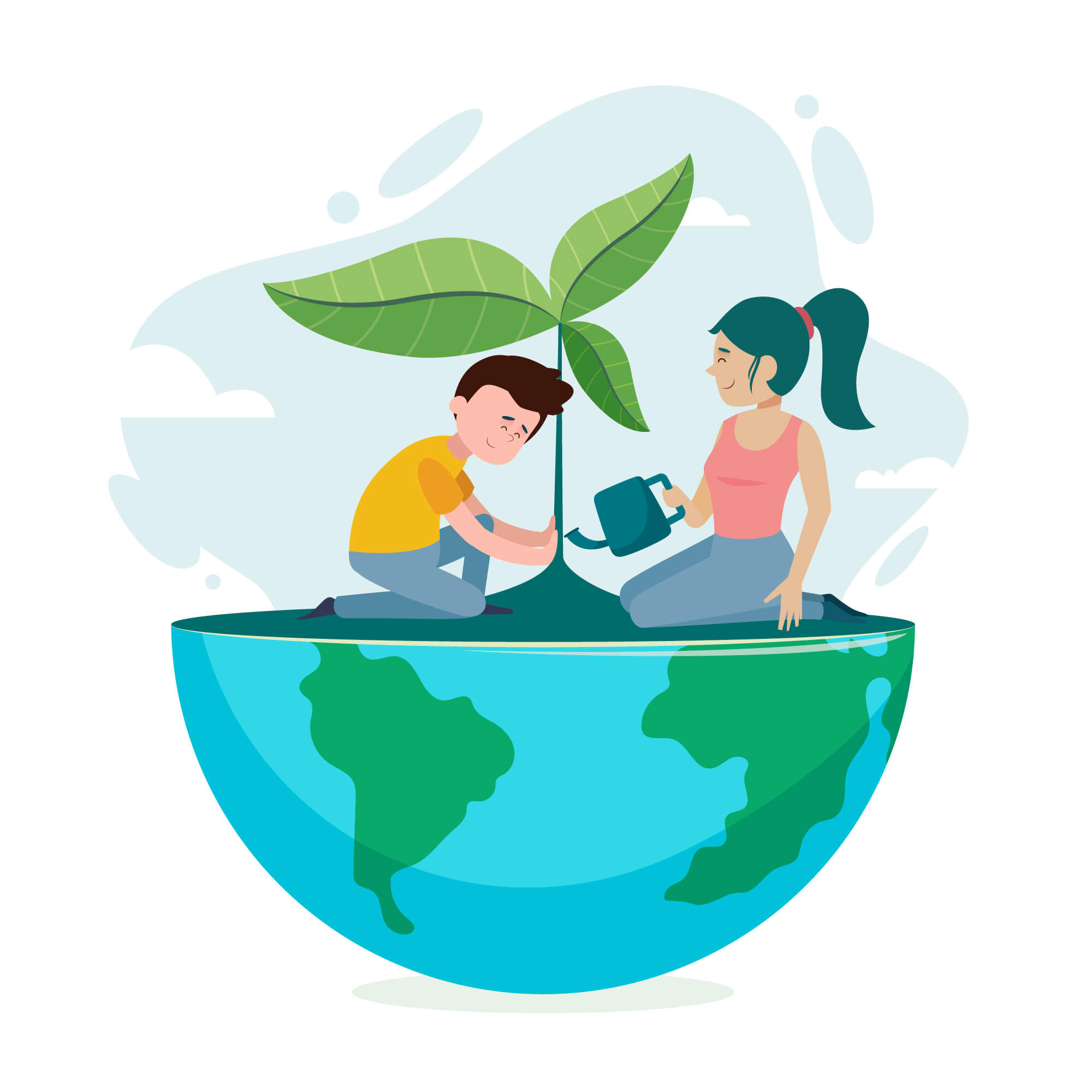
- Protecting Biodiversity:
At the heart of environmental conservation lies a crucial objective: preserving biodiversity—the extraordinary array of plant and animal species constituting our ecosystems. Volunteers play a pivotal role in this endeavor by engaging in wildlife monitoring and conservation projects, striving to shield endangered species from the precipice of extinction and maintain the delicate balance of natural ecosystems. Through their dedication to biodiversity preservation, volunteers act as guardians of the interconnected web of life that sustains every living being. Each contribution made is a vital step toward a harmonious coexistence with our natural world.
- Restoring Ecosystems:
Important ecosystems have suffered as a result of human activities like pollution and deforestation. Volunteers in environmental conservation work to restore habitats, plant trees, and carry out initiatives to restore deteriorated places. These restoration initiatives maintain wildlife habitats while simultaneously helping to sequester carbon, reducing the effects of climate change.
- Beach and Marine Conservation:
Coastal areas and marine ecosystems are particularly vulnerable to pollution and human interference. Volunteers can actively participate in beach cleanups, removing plastic and other debris that threaten marine life. Additionally, marine conservation projects might involve sea turtle protection, coral reef restoration, and raising awareness about sustainable fishing practices.
- Climate Change Mitigation:
Promoting sustainable practices and spreading awareness of climate change are two aspects of environmental conservation volunteer work. In order to encourage communities to adopt renewable energy sources and lessen their carbon footprint, volunteers may participate in climate education programs. Volunteers promote a more sustainable future for future generations through group activities.
- Community Engagement and Empowerment:
Environmental conservation involves not just safeguarding the environment but also involving and empowering local communities. Volunteers collaborate with locals to create ecotourism and agroforestry as examples of sustainable livelihoods. These initiatives make sure that locals benefit from conservation and promote their active participation in preserving their environment.
- Environmental Education:
Individuals, especially children, are given the knowledge and awareness necessary to become stewards of the environment by volunteering in environmental education programs. To foster a sense of responsibility for nature and its conservation, volunteers lead workshops, plan nature hikes, and enable participatory learning experiences.
- Conservation Research and Data Collection:
Volunteers help with data collecting and processing, which benefits scientific research. Understanding biological trends, keeping tabs on species populations, and formulating conservation strategies all depend on this data. Volunteers are essential to the process of making decisions on conservation that are based on fact.
Environmental conservation through volunteering serves as a resounding call to action for those who grasp the pressing need to safeguard the beauty of our natural world. Whether the focus is on preserving biodiversity, rejuvenating ecosystems, advocating for climate action, or engaging with local communities, volunteers wield significant influence in nurturing the planet's health. Every small effort made by individuals contributes to a larger, trans-formative impact. By dedicating our time and passion to environmental conservation, we ensure that forthcoming generations can revel in the splendor and magnificence of nature's wonders. Embrace the global movement of environmental volunteers, and become a vital part of this noble endeavor that shapes a more sustainable and harmonious world for all living creatures. Join us in preserving the Earth's precious heritage.
Empowering Women and Girls: Breaking Barriers
In a world where gender equality remains a paramount concern, volunteering abroad offers a remarkable avenue for empowering women and girls. It serves as a trans-formative experience that not only enables individuals to make meaningful contributions but also propels personal growth and empowerment. The journey of empowering women and girls through volunteering abroad is profoundly trans-formative. By dismantling cultural barriers, nurturing confidence, cultivating leadership skills, and addressing gender disparities, volunteers become agents of positive change in both the communities they serve and within themselves. Through their actions and mentorship, they ignite inspiration in others to recognize their potential and contribute to a more inclusive and equitable world. Let us wholeheartedly encourage and support women and girls in their volunteering pursuits, for they possess the power to shape a brighter and more empowered future for all.
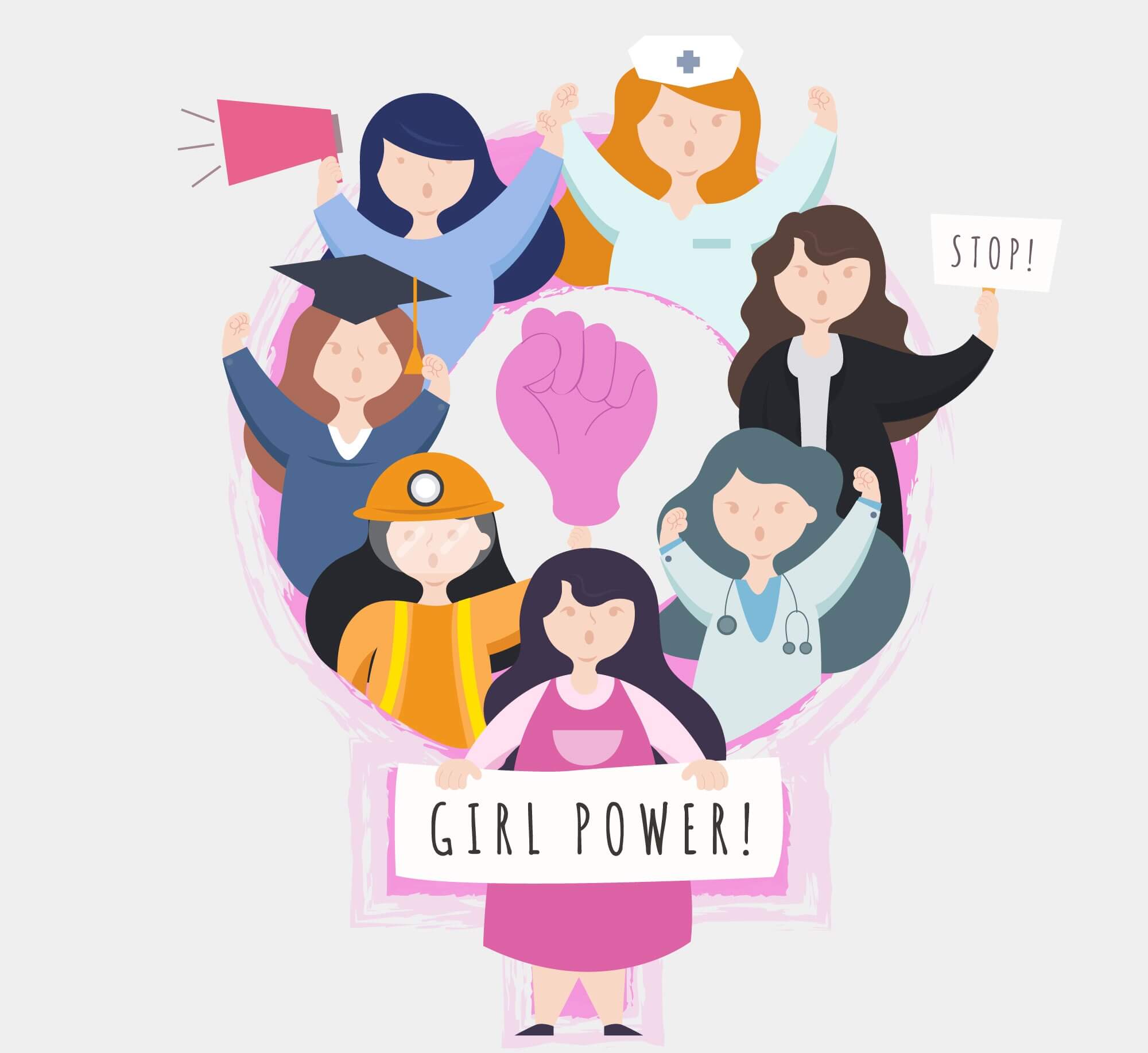
- Breaking Cultural Barriers:
Venturing outside of one's comfort zone and fully engaging in a foreign culture can indeed be intimidating, yet it offers a valuable chance to dismantle cultural barriers. Women and girls who volunteer abroad often encounter situations where gender norms and roles may diverge greatly from their familiar ones. By embracing these distinctions, they have the opportunity to challenge stereotypes and demonstrate the strength and resilience of women. - Building Confidence:
Volunteering abroad requires adaptability and resourcefulness, qualities that contribute to personal growth and boost confidence. Women and girls learn to navigate new situations, solve problems independently, and communicate effectively despite language barriers. These newfound skills can positively impact various aspects of their lives, empowering them to face challenges with determination and self-assurance. - Fostering Leadership:
Empowerment goes hand in hand with leadership development. Volunteering opportunities often involve managing projects, coordinating teams, and leading initiatives. Women and girls gain the leadership skills necessary to be aggressive, decisive, and empathic through these experiences. These leadership abilities are useful for future endeavors at home as well as during their time abroad. - Addressing Gender Disparities:
Many communities around the world face gender disparities and inequalities. By volunteering abroad, women and girls can actively contribute to projects that address such issues. From promoting girls' education to empowering women economically, these initiatives create a ripple effect that paves the way for a more gender-equal world. - Inspiring and Mentorship:
When women and girls volunteer abroad, they become powerful role models for others in their community. Their actions inspire others to break free from limiting societal norms and pursue their passions fearlessly. Additionally, they can provide mentorship and support to local women and girls, nurturing a cycle of empowerment that continues long after their volunteering journey. - Promoting Global Solidarity:
Volunteering abroad exposes women and girls to global challenges and connects them with like-minded individuals from diverse backgrounds. The shared mission of creating positive change fosters a sense of solidarity and mutual understanding. This global network can empower women to collaborate across borders and advocate for women's rights and empowerment worldwide.
Disaster Relief and Humanitarian Aid: Restoring Hope
In times of natural disasters or humanitarian crises, volunteers assume a pivotal role in providing essential immediate relief and vital long-term support to affected communities. Their unwavering dedication and rapid response significantly aid in helping people rebuild their lives and reignite hope in the face of overwhelming adversity. Disaster relief and humanitarian aid epitomize humanity's collective compassion and resilience, demonstrating our capacity to rise above challenges. In the midst of catastrophe, it is these organizations and their committed volunteers who serve as beacons of light during the darkest moments. Their tireless efforts, spanning from immediate relief to enduring recovery, touch lives, mend broken spirits, and reconstruct hope. Each one of us can contribute to our admirable efforts by offering donations, volunteering our time, or spreading the word about our crucial work. Collectively, we possess the ability to instigate positive change and illuminate the darkness.
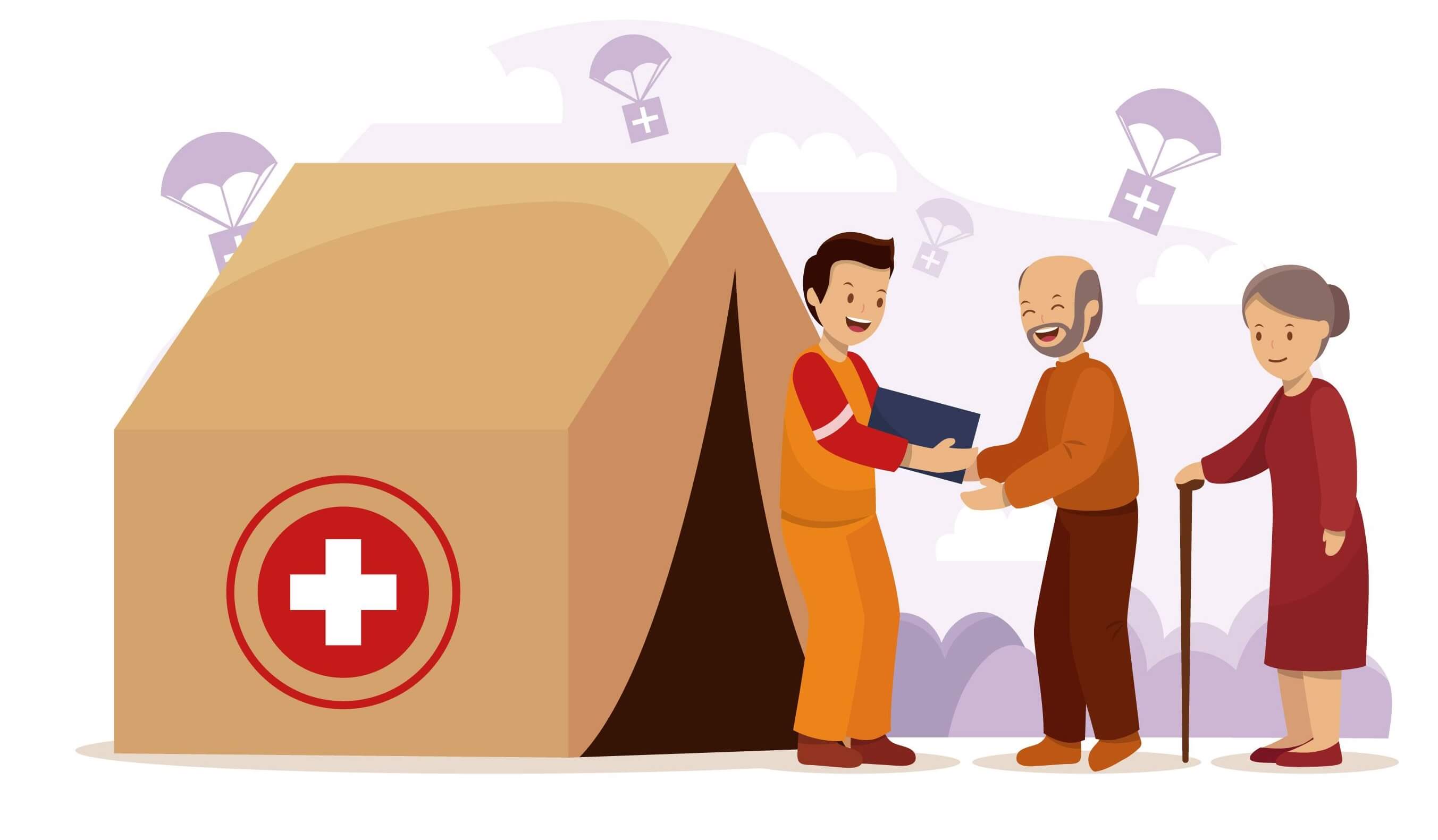
- United We Stand: The Power of Global Solidarity
Disasters know no boundaries, leaving a profound impact that transcends borders. In moments of crisis, the global community unites with compassion. Organizations like the Red Cross, Doctors Without Borders, and UNICEF swiftly deploy resources and expertise, offering immediate relief. Their aid spans medical assistance, food, and clean water distribution, underscoring our interconnectedness in times of adversity. - First Responders: Heroes Among Us
First responders transform into unsung heroes who selflessly risk their lives to save survivors and provide life-saving assistance following a tragedy. These brave individuals, including the firefighters, paramedics, and volunteers, are outstanding examples of bravery and altruism. Their dedication encourages us all and acts as a constant reminder that compassion always triumphs, even in the most trying situations. - Building Back Stronger: The Road to Recovery
Disaster relief involves more than just giving out emergency aid; it also involves long-term recovery and reconstructing destroyed lives. Organizations providing humanitarian relief put up endless effort to assist affected communities in rebuilding. From constructing shelters and schools to offering vocational training, they pave the way for a brighter future. By empowering locals and involving them in the recovery process, these organizations foster a sense of resilience and self-sufficiency within communities. - Empathy in Action: Stories of Impact
In the realm of humanitarian relief, countless inspiring tales of resilience and compassion lay hidden, waiting to be brought to light. Let us delve into a few of these remarkable stories. Consider the young girl who, having lost her home, found solace and healing in a mobile health clinic. Another example is the tale of an elderly man whose belief in people was restored when strangers banded together to help him rebuild his destroyed hamlet. These instances of sympathy and kindness serve as sobering reminders that, despite the destruction that disasters can inflict on communities, they also have the amazing power to bring out the best in people. These tales demonstrate the human spirit's tenacious character and highlight how kindness and solidarity can triumph despite hardship, bringing about a glimpse of hope and rejuvenation. - Preparing for the Unknown: Disaster Risk Reduction
Although we cannot stop disasters from happening, we can take measures to lessen their effects. Early warning systems, community involvement, and proactive planning are all part of disaster risk reduction initiatives. We can save lives and lessen the lasting effects of disasters by investing in preparedness and education. In promoting these policies and enticing governments to take the initiative, humanitarian organizations are crucial. - Cultivating a Culture of Preparedness: The Importance of Community Engagement
Disaster preparedness starts at the grassroots level, involving active participation and engagement from local communities. This section emphasizes the significance of community involvement in disaster risk reduction and response efforts. By empowering communities to take charge of their safety and well-being, humanitarian aid organizations foster a culture of preparedness that can save lives when disasters strike.
Cultural Exchange and Understanding: Bridging the Divide
Volunteering abroad entails more than mere generosity; it also encompasses the process of learning and cultivating respect for diverse cultures. This cultural exchange serves as a bridge that binds us together in a world that, at times, appears divided. Volunteers who fully immerse themselves in their host communities dispel misconceptions and nurture bonds of respect and empathy. It's a means of fostering global harmony and collaboration while also celebrating the beauty of diversity. Through the embrace of cultural exchange and understanding, we can dismantle barriers, confront stereotypes, and construct a more tranquil and interconnected world for generations to come. Let us collectively rejoice in the tapestry of human diversity and labor toward a brighter future for all.
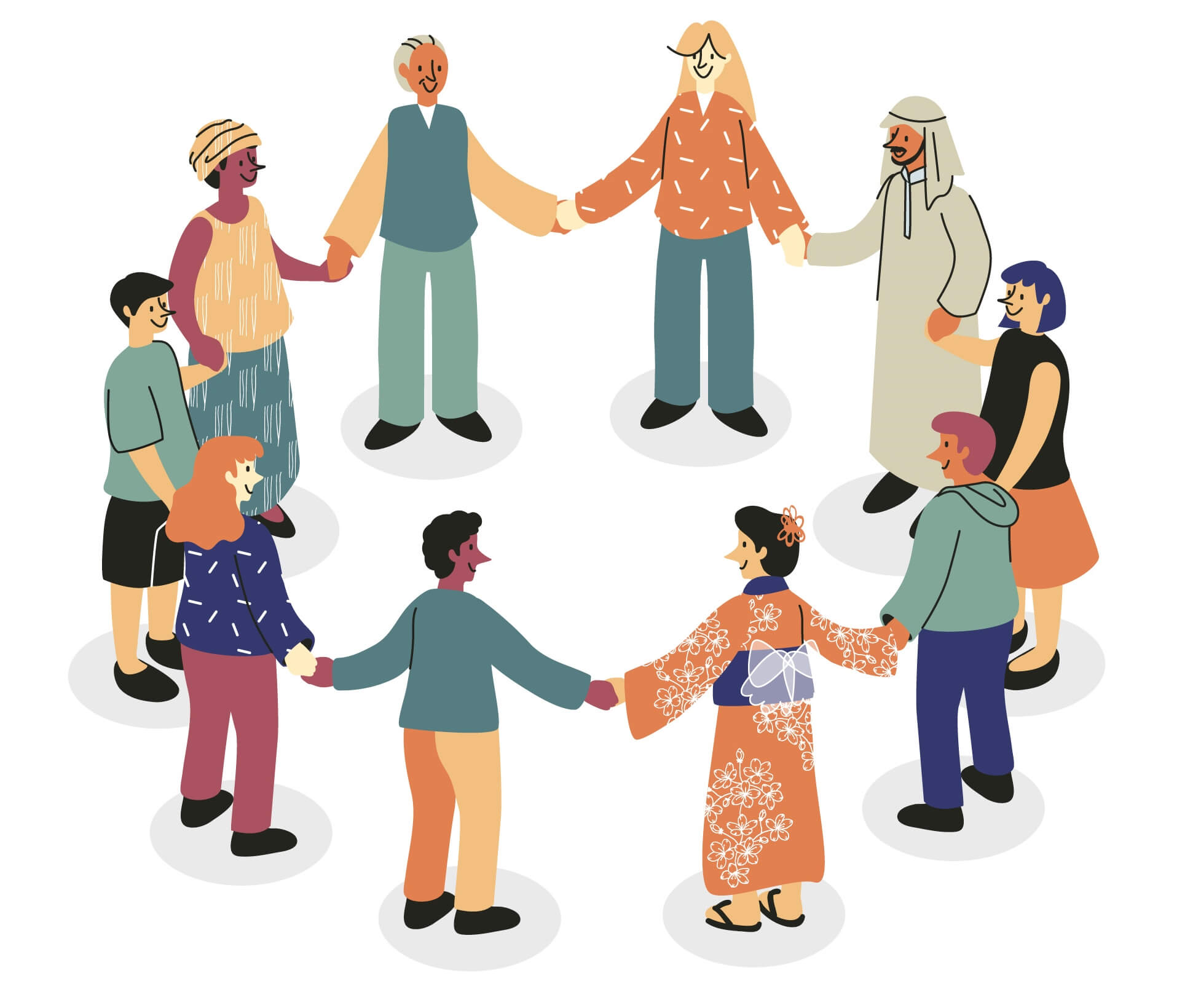
- Embracing Diversity:
The profound celebration and unwavering acceptance of difference are at the heart of cross-cultural interaction. Every culture we come across is a colorful tapestry made of distinctive practices, traditions, and beliefs. Embracing these distinctions wholeheartedly helps us develop a richer and deeper understanding of our common humanity. We can break down boundaries and create sincere connections with people from all walks of life if we approach everything with an open mind and empathy. We may stand together, unified in the strength of our shared links and the beauty of our differences thanks to this accepting attitude. - Learning from Each Other:
The exchange of cultures offers the chance to pick up knowledge from one another. We learn about various lifestyles through conversation, listening to individual stories, and taking on fresh viewpoints. This process of shared learning not only deepens our awareness of one another, but also promotes tolerance for diverse viewpoints and a feeling of global citizenship. - Breaking Stereotypes and Prejudices:
Prejudices and negative preconceptions frequently result from cultural ignorance or lack of exposure. To dispel these false beliefs, cultural contact is an effective approach. As we meet with people from other backgrounds, we become aware of how frequently our preconceived beliefs are incorrect. Knowledge takes the place of ignorance, opening the door to a more accepting and inclusive society. - Promoting Peace and Global Cooperation:
Building bridges through cultural exchange allows for international peace and collaboration. We foster camaraderie and understanding that transcend political and geographic boundaries by fostering personal ties across countries. We create a sense of community via art, music, language, and shared experiences, which can open the door for settling disputes and working together for the betterment of everyone. - Preserving Cultural Heritage:
Cultural interchange not only helps to preserve our own culture but also enables us to appreciate the diversity of others. Our cultural heritage is protected from extinction or dilution through passing on our customs to others. We learn more about the importance of our own traditions when we interact with people from different backgrounds, and we are motivated to pass them on to the next generation. - Empowering Individuals and Communities:
Cultural exchange gives people and communities worldwide platforms, empowering them. They earn attention and admiration from a larger audience by presenting their distinctive practices and aesthetic expressions. This understanding may result in business opportunities, the preservation of customary ways of life, and the promotion of sustainable development.
Advocacy and Human Rights: Giving Voice to the Voiceless
Volunteering abroad frequently entails championing the rights and welfare of marginalized and vulnerable groups. Volunteers are essential in amplifying voices that could otherwise be repressed, whether they are helping LGBTQ+ communities, fighting human trafficking, or promoting refugee rights. Volunteering provides a means by which we can promote constructive change in the areas of advocacy and human rights. Advocacy recognizes our common humanity and our obligation to stand out for those who are disadvantaged and under oppression. Let's unite as activists, volunteers, and change agents to give the voiceless a voice and build a more just and equitable world for all.
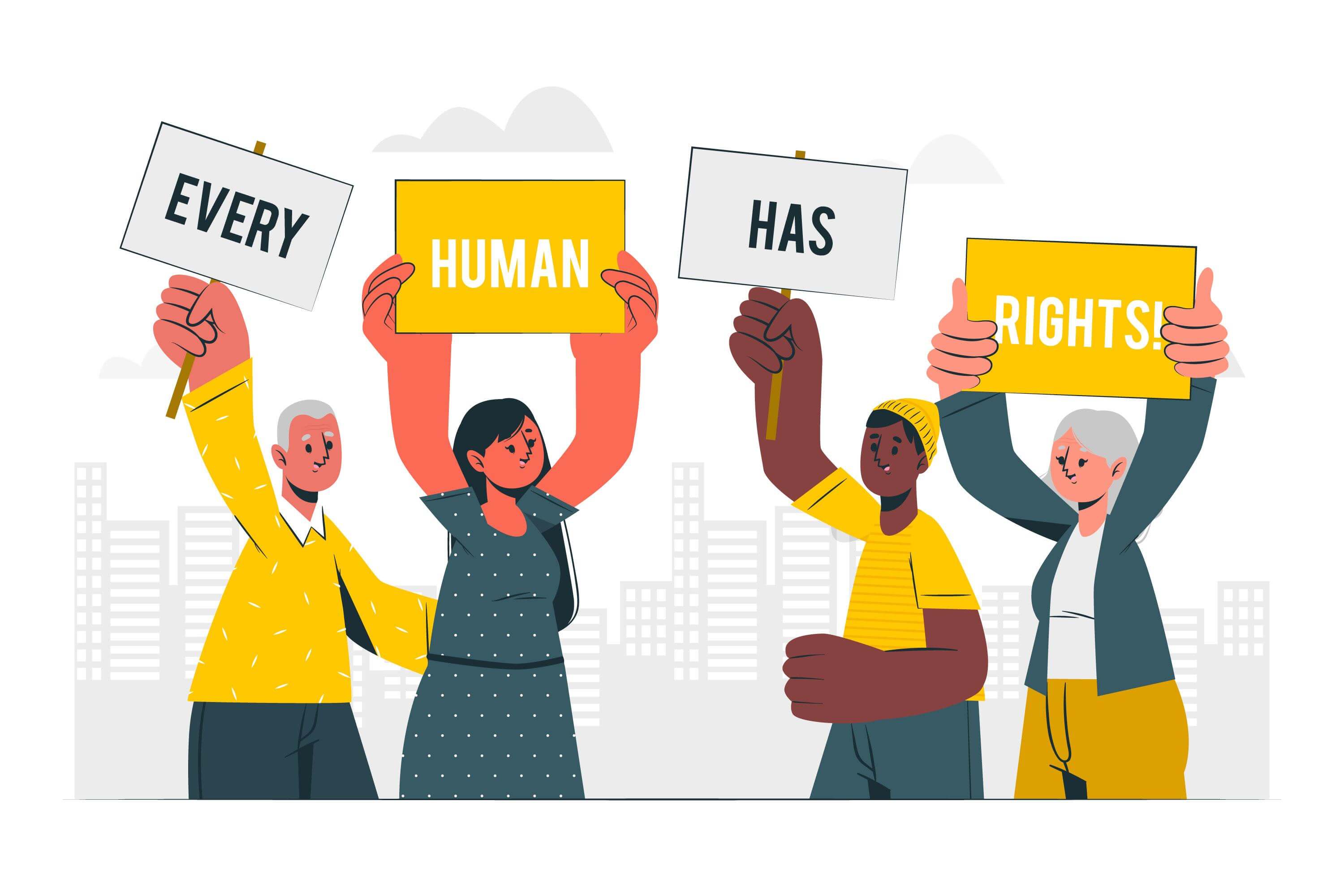
- Understanding the Power of Advocacy:
Advocacy plays a pivotal role in the human rights movement and goes beyond being a mere trendy term. At its core, advocacy is the act of disseminating information, influencing legislative change, and driving tangible transformation. Advocates serve as a beacon for issues that have long languished in obscurity, overshadowed by societal apathy, by amplifying the voices of those who have been silenced. Whether the cause is environmental conservation, LGBTQ+ rights, racial equity, or gender parity, unwavering champions who are willing to take a stand are indispensable to every noble endeavor. - The Role of Volunteers in Human Rights Advocacy:
Volunteers hold a crucial position in propelling human rights causes forward. They bring a variety of viewpoints, fresh concepts, and a steadfast desire to change the world. Volunteers may strengthen the voices of marginalized communities by devoting their time and talents, getting involved in grassroots initiatives, and helping well-established organizations increase their effect. Their contributions encompass a spectrum of activities, ranging from orchestrating awareness campaigns and fundraising events to offering direct assistance to those impacted by human rights infringements. - The Trans-formative Impact of Volunteering:
Volunteering has a two-way effect; in addition to helping the cause, it also changes the volunteers. You join a force greater than yourself when you decide to fight for human rights. They bring a variety of viewpoints, fresh concepts, and a steadfast desire to change the world. Volunteers may strengthen the voices of marginalized communities by devoting their time and talents, getting involved in grassroots initiatives, and helping well-established organisations increase their effect. - Overcoming Challenges:
While advocacy and volunteering are immensely rewarding, they come with their fair share of challenges. Tackling deeply rooted systemic issues can feel daunting, and progress may not always be immediate. However, staying committed and persevering in the face of adversity is what makes advocacy impactful. It is essential to remain patient, collaborative, and open to learning and growing through the process. - Getting Involved:
There are many opportunities to change the world if you're driven to speak up for the voiceless and volunteer. Begin your journey by searching for and reaching out to local or international human rights organizations that have a common alignment with your interests and enthusiasm. Participate in workshops, webinars, and events to acquire a deeper understanding of topics that hold personal significance. Employ social media platforms to disseminate information and gather backing for your cause. Never forget that even the tiniest actions can make a big difference for a greater purpose. - The Power of Collective Action:
When people band together as a collective force, advocacy gains even more power. When like-minded individuals band together for a shared cause, their voices are amplified and their influence is increased. Collective action has a cascading impact that encourages others to join the movement and elevates concerns in the public eye. Advocates may bring about long-lasting change and demand accountability from governments, institutions, and companies by planning protests, petition drives, and community events.
Impact of Advocacy on Specific Human Rights Issues:
(a) Gender Equality:
For the purpose of eliminating negative perceptions and creating equal opportunities for people of all genders, gender equality advocacy is essential. Advocates can help create a more inclusive and just society by opposing discriminatory practices and fighting for laws that support gender equality.
(b) Education and Child Rights:
A fundamental human right, access to a high-quality education is nevertheless denied to millions of children worldwide. Advocates are essential in advancing educational programs, ending child labor, and upholding children's rights.
(c) LGBTQ+ Rights:
A fundamental human right, access to a high-quality education is nevertheless denied to millions of children worldwide. Advocates are essential in advancing educational programs, ending child labor, and upholding children's rights.
(d) Environmental Protection:
The protection of our world for the benefit of future generations depends critically on environmental campaigning. By participating in conservation efforts, raising awareness of climate change, and promoting sustainable practices to lessen the negative effects of human activity on the environment, volunteers play a crucial role.
- Advocacy and Digital Activism:
Through social media and online platforms, activism in the digital age has discovered new channels. Advocates may connect with like-minded people worldwide, reach a larger audience, and start important discussions about crucial human rights issues thanks to digital activism. Online petitions, viral campaigns, and hashtags have all developed into potent instruments for building support and advancing change. - Overcoming Burnout and Maintaining Resilience:
Advocacy work can be emotionally demanding, leading to burnout for some volunteers. It's essential to recognize signs of burnout and practice self-care. Engaging in mindfulness techniques, seeking support from fellow advocates, and taking breaks when needed are essential to sustaining long-term commitment and impact. - Advocacy Beyond Volunteering:
While volunteering is a significant way to contribute, advocacy doesn't end there. Integrating human rights principles into everyday life is equally important. This includes being conscious of our consumer choices, supporting businesses that prioritize ethical practices, and voting for representatives who champion human rights causes.
Sustainable Community Development: Building a Brighter Tomorrow
Volunteering for sustainable community development embodies the transformative potential of collective action. We establish the groundwork for a better and more sustainable future for communities all around the world by embracing collaboration, empathy, and a sense of global citizenship. By devoting our time, talents, and enthusiasm, we become change agents and leave a legacy that future generations will treasure. Let's work together to improve the world and pursue a path of growth and empowerment. By collaborating, we can build strong and sustainable communities that can serve as inspiration for others worldwide. To meet their most urgent needs and promote sustainable development, volunteers frequently collaborate with local communities. Whether it's drilling clean water wells, carrying out eco-friendly projects, or assisting local business owners, these activities have a significant and long-lasting effect on everyone's lives.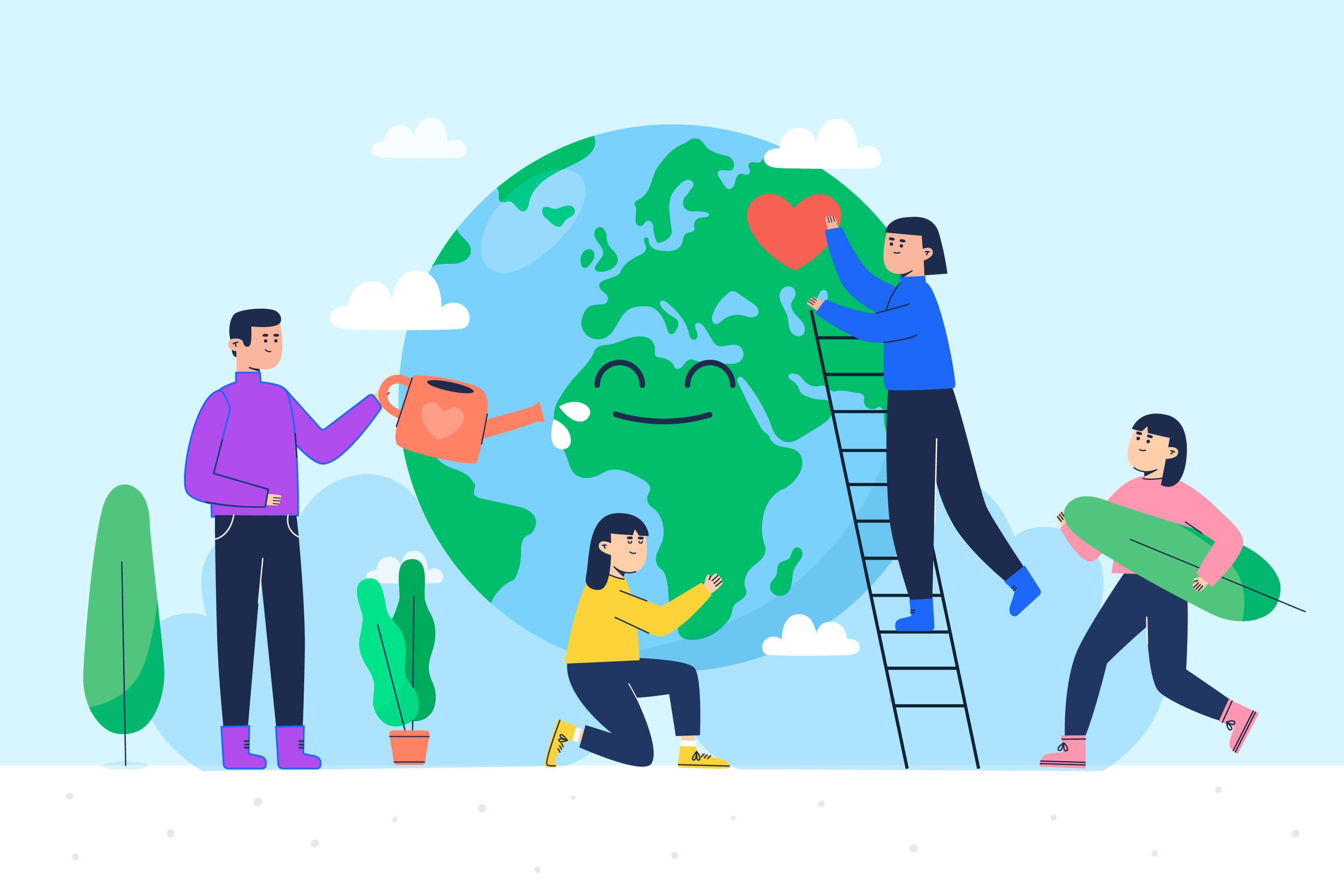
- Understanding Sustainable Community Development
Sustainable community development embodies a comprehensive and inclusive strategy aimed at enhancing the well-being of individuals within a community, while also safeguarding the environment for the prosperity of generations to come. It seeks to achieve a delicate equilibrium between economic advancement, social fairness, and environmental conservation. In contrast to temporary fixes, sustainable development places emphasis on enduring progress that advantages all those involved. - The Role of Volunteering in Sustainable Community Development
The key to sustainable community development is volunteering. It serves as a catalyst for good transformation and encourages individuals to take an active role in molding their own destinies. Volunteers help communities expand inclusively by bringing a variety of talents, knowledge, and new views to bear on urgent challenges. - Fostering Environmental Sustainability
Volunteers play a crucial role in promoting environmental sustainability within communities. Whether it's organizing tree-planting campaigns, educating locals on waste management, or implementing renewable energy projects, their efforts create a ripple effect that extends beyond immediate results. - Nurturing Social Equity
Social justice is prioritized in sustainable community development to ensure that no one is left behind. By enabling the development of platforms for projects in education, healthcare, and skill-building, volunteering empowers marginalized communities and promotes harmony and understanding. - Building Resilience and Self-Reliance
Communities equipped with sustainable practices and strengthened by volunteering become more resilient in the face of adversity. Through community-driven projects, locals gain a sense of self-reliance, reducing their dependence on external aid and empowering them to tackle challenges with confidence. - Fostering Global Citizenship
Volunteering for sustainable community development transcends borders and cultures, fostering global citizenship. Volunteers from different corners of the world unite in their shared purpose, broadening their perspectives and contributing to a more interconnected and compassionate world. - Overcoming Challenges in Sustainable Development Volunteering
While the impact of volunteering in sustainable community development is immense, challenges inevitably arise. Lack of resources, cultural differences, and bureaucratic hurdles may hinder progress. However, by acknowledging and addressing these obstacles, volunteers can develop innovative solutions and ensure long-lasting change. - Maximizing Impact: Collaborative Partnerships
When volunteers, non-governmental organizations (NGOs), local stakeholders, and governments collaborate, initiatives for sustainable community development are more successful. They may pool resources, share information, and develop elaborate strategies for sustainable growth when they work together.

